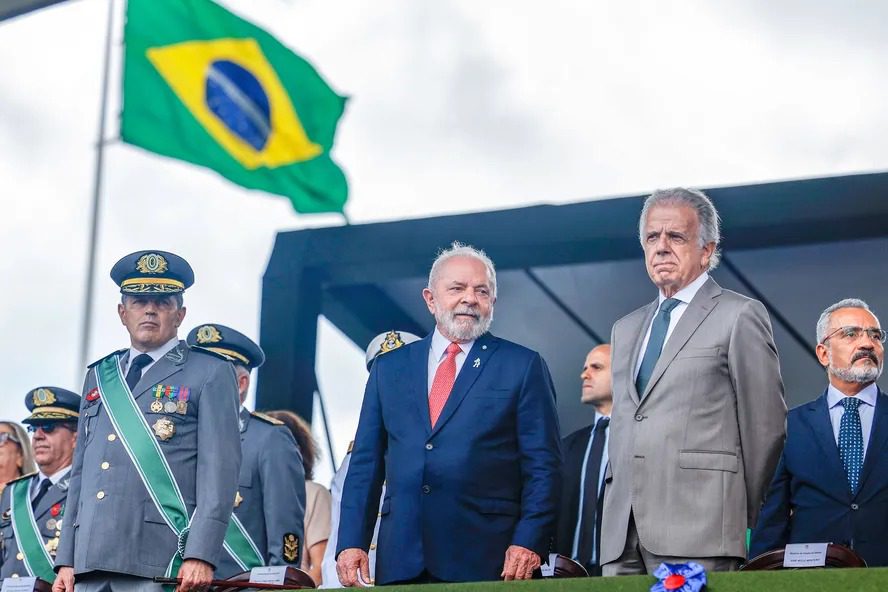Different ministerial actions and a campaign entitled “60 years of the 1964-2024 coup-without memory there is no future” were the activities planned by the Ministry of Human Rights for April 1 that were canceled by the Order of Luiz Inacio to perform critical acts to the military coup at the mark of six decades of the episode. The information was revealed by Folha de São Paulo.
The documents accessed by the monopolistic newspaper indicate that one of the actions was entitled “Called for an interministerial and intersectoral campaign”, and sought to articulate different sectors in an act of condemnation of the coup. Another act sought a series of “formal reparations”, as a public apology from the different ministries to those who suffered for the military regime.
They are unquestionably shy initiatives, but what stands out most in the picture is not the lack of voluptuousness of actions planned by the human rights portfolio, but as Luiz Inacio ordered the end of these purely institutional initiatives, which would directly affect the barracks. No reactionary military man would be forced to take part in the “public apology”, for example.
And if the government capitulates even in movements like these, what else can be expected? If the presidency does not want to gather ministers for a retraction on behalf of the Brazilian State, who can expect bodies such as the Special Commission on Political Dead and Missing (extinct in Bolsonaro's government), which investigates the crimes of the military regime and cast more light in Will torturers and murderers of the military regime be reopened by the current government?
Moreover, another central question is raised again: if the government feels so shy to formally condemn the coup 60 years ago, as it will fight in fact The coup today? According to some in the government, Luiz Inacio "discouraged" the military to celebrate the military coup, but the kind request did not work. In Rio, the Military Club has already marked an event to celebrate the date, which will have as a speaker a general known for the pro-64 positions and pro-intervention of the barracks in national political life.
Bring to the Bank of the Defendants some generals and other senior mandates burned by the proximity to the Bolsonarist Center, which is a cause for the government's boost in recent weeks, it is not the highest fight against coup, no matter how necessary. The fight against coup necessarily permeates the conception present in the reactionary armed forces since the founding of the Republic that they are the true moderating power of the nation.
This conception is not exclusive to those who drive institutional rupture in 2022, precisely because it is a nuclear part of the Brazilian reactionary forces and being passed on generation after generation in training courses. Freire Gomes, for example, former army commander who allegedly opposed the break in 2022, signed the note that, besides showing support for camps in front of the barracks, argued that the Armed Forces were “Always present and moderators in the most important moments of our history” . Throughout the last year, and particularly at a January 2023 meeting with his subordinates, the current commander Tomás Paiva and then (in January) commander of the Southeast Military Command, also It has already made it clear that it is not against the politicization of the Armed Forces reactionary and its intervention in national political life .
This podium has already stated and will continue to say: forgetting the coup of 64 only matters to today's scammers.
Progressive and democratic activists across the country, among which are family members of the regime's victim, similarly state that it is impossible to deal with recent episodes of coup in the country without taking into account the 1964 coup and, besides it, “amystist ”To the generals of the period in the departure of the regime.
